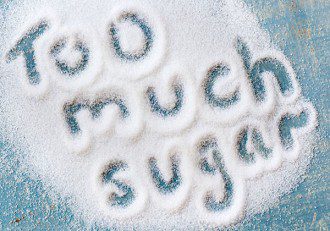Staff Writer for Wake Up World
Do you have a sweet tooth? New research from the University of Surrey reveals that your love for sugary treats might be impacting more than just your waistline. According to the study, individuals with a preference for sweets are at a higher risk of developing depression, diabetes, and even suffering a stroke.
The Sweet Tooth Dilemma
The study, published in the Journal of Translational Medicine, analyzed the food preferences of over 180,000 people from the UK Biobank and grouped them into three dietary profiles using artificial intelligence:
- Health-conscious: Those who prefer fruits and vegetables over sweets and animal-based products.
- Omnivore: People who enjoy a variety of foods, including meats, fish, vegetables, and occasional sweets.
- Sweet tooth: Individuals who favor sugary foods and drinks while avoiding healthier options like fruits and vegetables.
Of the three groups, the “sweet tooth” profile showed the most concerning health markers, highlighting a connection between sugar consumption and serious health risks.
Sugar and Mental Health: A 31% Increase in Depression
One of the study’s key findings is that those with a sweet tooth are 31% more likely to suffer from depression. Professor Nophar Geifman, the senior author of the study, explains:
“The foods that you like or dislike seem to directly link to your health. If your favorite foods are cakes, sweets, and sugary drinks, then our study’s results suggest that this may have negative effects on your health.”
It turns out that sugar does more than just provide a fleeting sense of satisfaction. It can alter brain chemistry and potentially contribute to mental health challenges. Depression, now one of the most common mental health disorders worldwide, has strong links to inflammation—something that sugar-heavy diets tend to worsen.
The Biological Markers of a Sugar-Heavy Diet
By examining blood samples, the researchers found stark differences in biological markers between the sweet tooth group and the other two profiles. Specifically, individuals in this group showed higher levels of C-reactive protein, which is a marker of inflammation. Chronic inflammation is a precursor to many illnesses, including diabetes, heart disease, and even mental health issues like depression.
In addition to inflammation, the sweet tooth group exhibited:
- Higher glucose levels: A warning sign for diabetes.
- Poor lipid profiles: An indication of potential heart disease.
These blood results serve as a clear indication that the regular consumption of sugary foods can have a lasting and damaging impact on overall health.
The Long-Term Risks: Diabetes, Stroke, and Heart Disease
Beyond mental health, the study uncovered increased risks of physical ailments for sweet lovers. The sweet tooth group had higher incidences of diabetes, vascular heart conditions, and stroke when compared to their health-conscious and omnivorous counterparts.
According to Professor Geifman, this is a call for mindfulness in our food choices:
Processed sugar is a key factor in the diet of many, and these results are yet more evidence that, as a society, we should do all that we can to think before we eat.
In contrast, those with a diet rich in fruits, vegetables, and dietary fiber had far fewer health risks. The health-conscious group showed lower risks of heart failure, chronic kidney disease, and stroke. Even the omnivore group—who balanced their intake of meats, vegetables, and sweets—displayed moderate health risks in comparison.
Reducing Sugar Intake: A Key to Better Health
According to the British Nutrition Foundation, in the UK, between 9% and 12.5% of an individual’s daily calories come from free sugar. These sugars are added to foods like biscuits, buns, cakes, sugary drinks, and alcoholic beverages—key contributors to the free sugar intake that’s impacting public health.
Reducing our consumption of these sugary foods and drinks could significantly lower our risk for these life-altering diseases. Small lifestyle changes, such as choosing fruit over sugary snacks or opting for water instead of soda, could profoundly impact our mental and physical well-being.
Practical Tips to Reduce Sugar and Improve Health
Cutting back on sugar doesn’t have to be overwhelming. Small, consistent changes can greatly impact your health and well-being. Here are some practical tips to help you reduce your sugar intake and lower your risk of depression, diabetes, and stroke:
1. Read Labels Carefully
Many processed foods, even those marketed as “healthy, ” contain hidden sugars. Check ingredient lists for added sugars, including terms like glucose, fructose, sucrose, and corn syrup. Opt for products with little to no added sugar.
2. Choose Natural Sweeteners
When you need a sweet fix, reach for natural sweeteners like honey, maple syrup, or stevia, but still in moderation. These options are less processed and have a lower impact on blood sugar levels.
3. Swap Sugary Drinks for Water or Herbal Teas
Soda, energy drinks, and some fruit juices are packed with sugars. Replace these with water, herbal teas, or flavored water with slices of fruit or mint for a refreshing alternative.
4. Snack on Fruits and Nuts
Instead of reaching for cookies or candies, snack on fresh fruit or a handful of nuts. These options satisfy cravings and provide essential nutrients like fiber and healthy fats.
5. Cook at Home
Cooking meals at home gives you complete control over ingredients. Use whole foods and avoid pre-packaged sauces and dressings, which often contain added sugars. Homemade meals tend to be healthier and more satisfying.
6. Gradually Reduce Sugar in Recipes
If you enjoy baking, try reducing the amount of sugar in your recipes by 10-20%. Over time, your taste buds will adjust, and you’ll need less sweetness to enjoy your treats.
7. Watch Out for Alcohol
Alcoholic beverages can be a significant source of hidden sugars. If you drink, choose lower-sugar options like dry wine or spirits with soda water instead of sugary mixers.
By making these small adjustments, you can reduce your sugar intake, protect your health, and improve your overall quality of life.
Conclusion: It’s Time to Rethink Our Sugar Cravings
Sugar may seem harmless, but this new research clarifies that indulging in sweet treats could have severe consequences for your health. From depression to diabetes and stroke, the effects of sugar reach deep into our biological systems, highlighting the need for healthier food choices.
It’s not about eliminating sugar altogether, but as Professor Geifman wisely notes:
“No one wants to tell people what to do, our job is just informing people.”
So, next time you reach for that sugary snack, consider what your body is truly asking for. Your mind and body will thank you in the long run.
Journal Reference:
- Artificial intelligence driven definition of food preference endotypes in UK Biobank volunteers is associated with distinctive health outcomes and blood based metabolomic and proteomic profiles. Journal of Translational Medicine, 2024; 22 (1) DOI: 10.1186/s12967-024-05663-0
About the author:
John Patterson is an avid writer and researcher who delves into the latest scientific research. With an insatiable curiosity, he translates complex concepts into accessible narratives, allowing readers to embark on a journey of discovery. John bridges the gap between experts and the public through his work, igniting curiosity and inspiring meaningful conversations about scientific breakthroughs.
Unlock your body’s innate healing power with Cellular Resonance Quantum Healing. This transformative approach helps you shift from fear to unconditional love at the cellular level, releasing emotional and energetic patterns that hold you back. Join our free online event to learn how to uncover the hidden causes of illness and initiate true healing from within. During the event, you’ll explore the Discovering the Cause Process, a practice that enhances your body’s frequency and reveals the root causes of pain. With insights from neuro-linguistics and spiritual psychology, this method empowers you to transform your health at the deepest cellular level.
Register now for this free event.
Embrace a healthier, more fulfilling life by learning to release unhelpful patterns and cultivate forgiveness and self-compassion. This free online event will guide you beyond symptom management to true healing. You will learn to:
- Initiate healing from within, beyond symptom management
- Transform your health by shifting from fear to love
- Release old patterns and reduce stress
- Explore the interconnectedness of mind, body, and soul
- Understand how to uncover and release emotional trauma at the cellular level
Secure your spot today and start your journey to reclaim your mind-body power.
If you’ve found value in our articles, we invite you to support the release of our brand-new book, “Gratitude Practices for Kids: A Practical Guide for Adults to Instill a Spirit of Appreciation and Positivity in the Next Generation.“
“Gratitude Practices for Kids” brings together over 25 innovative and accessible practices designed to enhance gratitude in everyday life. This comprehensive guide is backed by 17 scientific studies, ensuring each concept is grounded in research, underscoring our commitment to nurturing growth, emotional intelligence, and positive interactions between adults and children.
We encourage you to opt for the paperback version to celebrate this new release. Dive into its fresh pages away from digital distractions, allowing you to immerse yourself in the transformative practices it offers.
Over recent years, Wake Up World has faced significant online censorship, which has impacted our financial ability to operate. Moving into book publishing represents a strategic step to secure the ongoing funds needed to continue our mission. By purchasing Gratitude for Kids, you help us keep our content free and accessible to everyone, avoiding needing a paywall. With over 8,500 articles published in the last 13 years, we remain dedicated to keeping our valuable content open to all.









